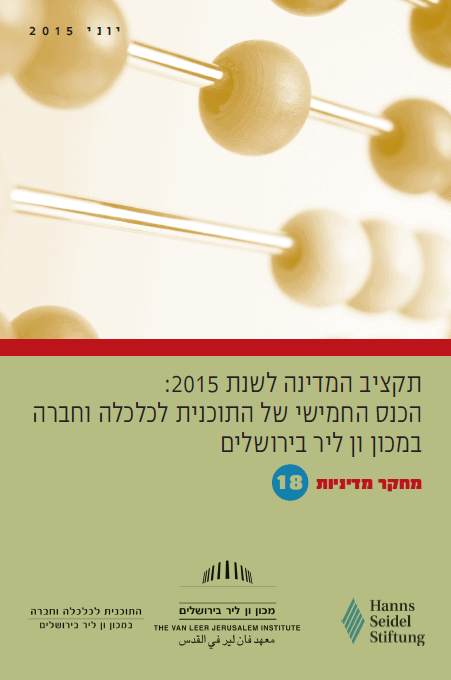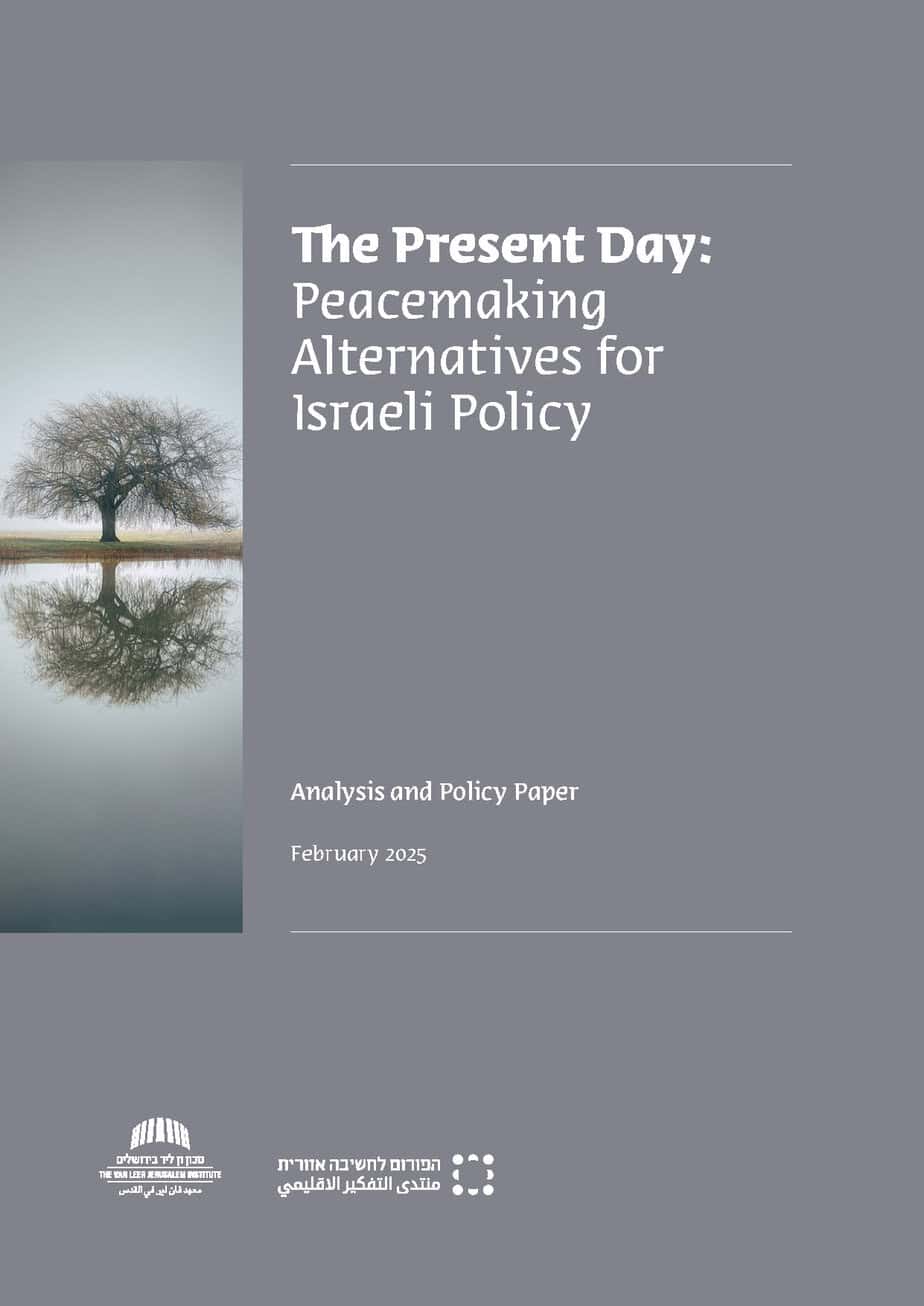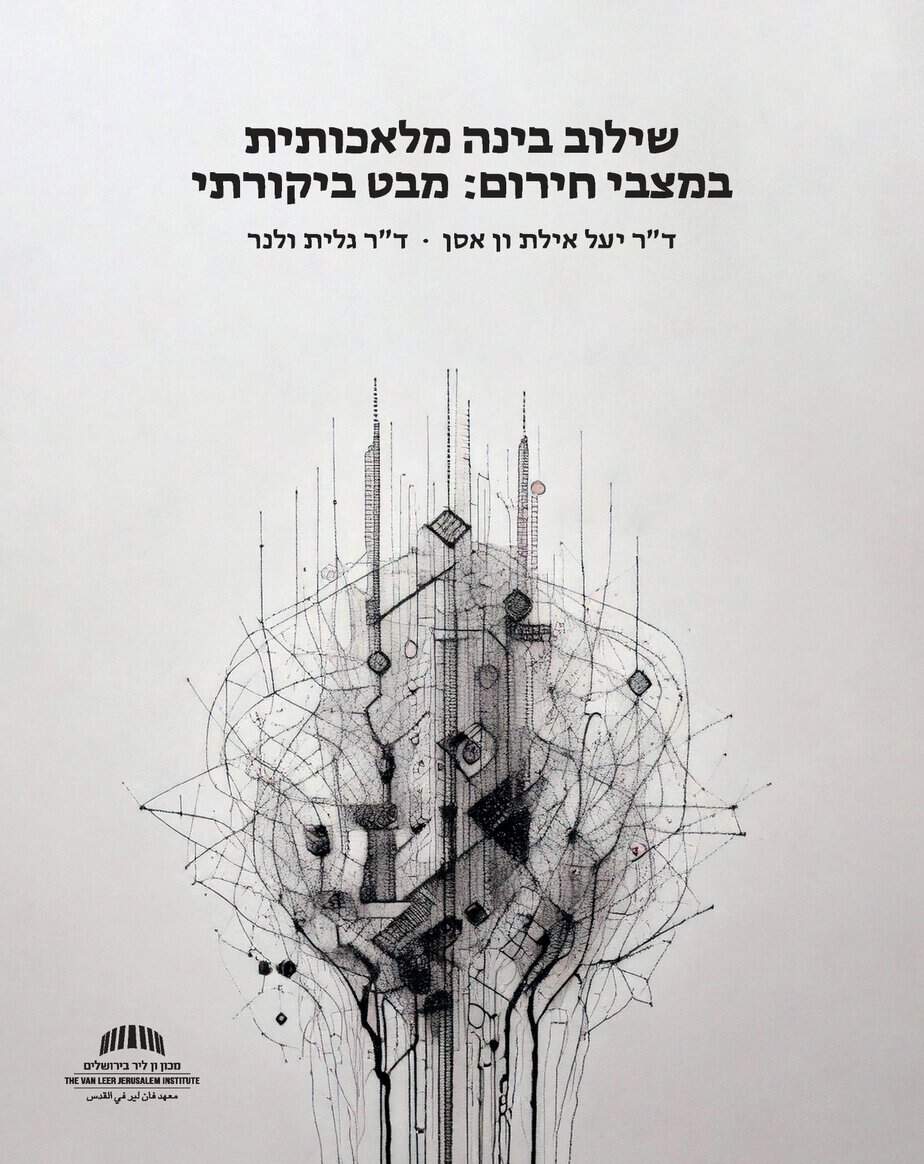The Government Budget for 2015
The Fifth Annual Conference of the Economics and Society Program at the Van Leer Jerusalem Institute
| Publisher | Van Leer Institute Press |
| Language | Hebrew |
| Year of Publication | 2015 |
| Series | The Economics and Society Program |
The 2015 government budget poses enormous challenges because of the complex circumstances existing at the time of its preparation. Beyond the challenge of integrating the Arab and ultra-Orthodox populations in the work force—which heightens the question of whether to increase the involvement of the government employment service—the government must contend with high rates of poverty and of unequal income distribution. These are, in part, the results of its own policy: the recent additional cut in the child allowance, which was only partly offset by the introduction of the work-grant program. The inequality of net income was also made worse by the adoption of a taxation policy that over the past decade has lowered the progressive taxes (income tax for individuals and company tax) and increased the regressive taxes (VAT and cigarette tax). This study presents an analysis of policy scenarios for a government faced with the dilemma of increasing public expenditure so as to allocate resources for health and the alleviation of poverty, as recommended by the German and Alalouf committees, or refraining from raising taxes—which will require it to clarify whether civilian expenditure takes precedence over defense expenditure. This policy study presents the options available to the government and analyzes the cost of each of them.
You can download a PDF file of the brochure or order a printed brochure
(postage mail: NIS 10).




